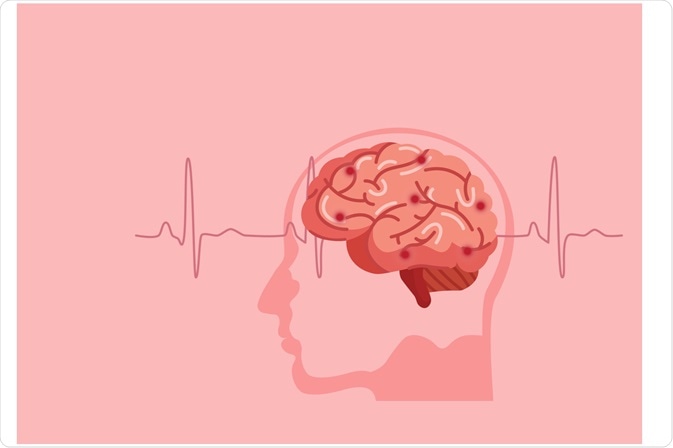Transient ischemic attack (TIA) is a temporary condition that will resolve without specific treatment. However, it is important that anyone who is suspected to have experienced a TIA receives medical care as soon as possible to confirm the diagnosis and reduce the risk of a subsequent attack or more serious stroke in the future.

Image Credit: Piyaphat_Detbun / Shutterstock.com
TIA can be considered as a warning sign that an individual is at a higher risk of having a stroke and should, therefore, be followed by adequate medical management to lower this risk.
Optimal treatment will depend on individual circumstances including age and concurrent medical conditions. The benefits and risks of different treatment options should be balanced to decide upon the most appropriate choice. Lifestyle changes are also often recommended to help manage the risk of stroke.
Pharmaceutical management
Most individuals who experience a TIA are advised to take medication following the event to manage the risk of subsequent attacks and stroke.
Antiplatelet medications such as aspirin, clopidogrel, and dipyridamole are widely used. Their mechanism of action is to make it more difficult for blood clots to be formed by reducing the function of platelets in the blood. Anticoagulant medications, such as warfarin, work on the clotting factors present in the blood and alters the ability of the blood to form clots.
Both antiplatelet and anticoagulant medications are associated with an increased risk of bleeding as a result of the inhibition of the ability to form clots. In particular, warfarin is widely known for this and requires regular blood tests to monitor the effect of the medication.
If high blood pressure is noted upon examination following a TIA, antihypertensive may offer a benefit. There are several different types of medications that can be used to lower blood pressure and the decision of which types depends on the individual. In some cases, a combination of several medications is used.
Similarly, if blood test results indicate raised levels of cholesterol, statins are usually prescribed to prevent the formation of atherosclerotic plaques and resulting blood clots. These medications work by blocking an enzyme that is required to produce cholesterol in the liver.
If any other underlying conditions are noted upon physical examination, such as diabetes, appropriate treatment should be prescribed to manage these and the associated risk of stroke or subsequent TIA.
Stroke - Causes, Symptoms and Treatment Options
Lifestyle changes
Due to the specific risk factors of TIA and stroke, such as obesity, there are simple lifestyle changes that can be made to lessen the risk.
Nutrition plays an important role; therefore, advising patients to opt for a balanced diet with a high intake of fruit and vegetables is essential. Avoiding foods that are known to be problematic, such as those high in fat, salt, and sugar, is also recommended.
Regular exercise is also a significant factor and people should be aiming for 30 minutes of exercise each day. It is not necessary for exercise to be high intensity, as cycling or fast-paced walking have been shown to have a positive effect.
Smoking and excessive alcohol consumption are linked to an increased risk of cardiovascular disease and stroke. It is recommended that individuals stop smoking completely if possible and limit their intake of alcohol.
Surgery
Some patients may require a surgical procedure known as a carotid endarterectomy following a TIA. This involves the removal of the lining and any blockage associated with the carotid artery that may be obstructing blood flow to the brain.
References
Further Reading
Last Updated: Feb 24, 2023